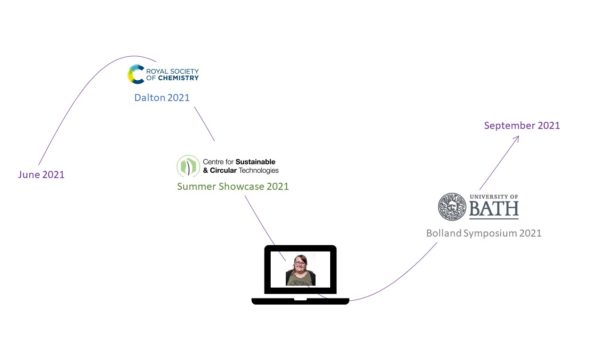The Stem Cell Symposium organised by the Cardiff Stem Cell Network is a free event, in its second year, that brings together researchers in the south west. A number of students from the University of Bath, based in chemical engineering, pharmacy and biology, attended, including two DTC students: first-year Tristan Smith and second-year Marcus Johns, who brings us this report.
Having not done any biology in any great depth – enzyme kinetics excluded – since GCSE, I found the prospect of spending a day at an event where PhD objectives included ‘[investigating] the mechanism of the chemopreventative properties of dietary polyphenols on Wnt-driven tumorigenesis’ daunting. However, the event proved to be very informative with participants happy to simplify their language and explain concepts when informed that they were in the presence of a chemical engineer.
The plenary lecture ‘Bringing mesenchymal stem cells into the clinic’ by Professor Katarina Le Blanc (Karolinska Institutet) demonstrated that even when strong, beneficial research is conducted – in this case the inhibition of immune responses in leukaemia patients using mesenchymal stem cells (MSCs) – it still remains challenging to bring it to the point of clinical use. This point was reiterated by Dr Chris Goldring (University of Liverpool), who warned that significant steps needed to be taken to ensure the safety of regenerative medicine therapies and guarantee that the mistakes in the area of gene therapy twenty years ago were not repeated in his lecture ‘Preclinical safety assessment of stem cell therapy’.
The University of Bath was well represented with two lectures by Dr Vasanta Subramanian and Professor David Tosh – director of the Centre for Regenerative Medicine – on the role of primary cilia in stem cell maintenance and differentiation, and the transdifferentiation of pancreatic cells to hepatic cells respectively. However, it was perhaps slightly disappointing that none of the ten talks touched upon the role of tissue scaffolds for both in vivo and in vitro use, despite the recognition of their increasing importance in the literature. This was reflected in the posters on display, where only a handful concerned themselves with the subject – almost all from the University of Bath.
Respond


